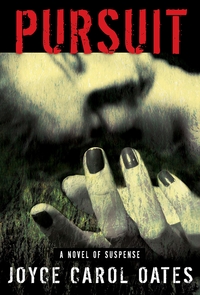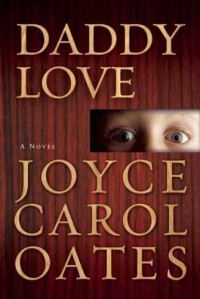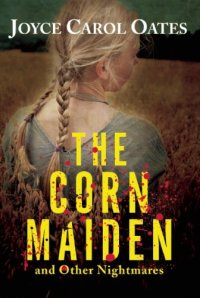Pursuit by Joyce Carol Oates
 Monday, October 28, 2019 at 6:55AM
Monday, October 28, 2019 at 6:55AM 
Published by Grove Atlantic/Mysterious Press on October 1, 2019
Joyce Carol Oates writes horror stories with a literary sensibility, at least when she’s not writing literary stories that are informed by horror. Her horror stories do not depend on zombies or slasher-killers. Her characters suffer from the horrors of abuse and neglect and the awful things that people do to each other, particularly spouses and parents. A horrifying childhood and its impact on a young woman are at the heart of Pursuit.
Abby Hayman (her real name is Miriam, but she prefers Gabriela, the name she invented for herself) has been married to Willem Zengler for less than a day. She was a virgin when they married because Willem is very religious. Willem “identifies strongly as a Christian but not the kind of somber-faced Christians who take themselves too seriously.” Yet taking himself too seriously is the exact definition of Willem, even if his face might not always be somber.
Early in the novel, Abby steps in front of a bus and is in a coma for a few weeks before she is treated, rehabilitated, and sent home with Willem. Why did newlywed Abby step in front of the bus? The answer is not immediately clear.
Abby’s father, Lew, was an angry veteran, blaming the world for his misfortune. Like many angry vets, it is not obvious whether he was scarred by war or whether he went to war because it suited his scarred personality. In any event, Abby’s mother, Nicola, eventually kicked Lew out of the house. A section of the novel tells us that story from Lew’s self-interested perspective. Another section tells the same story from Nicola’s very different perspective. Oates paints Nicola as a vulnerable woman, easily manipulated by a manipulative man, who gains strength from her experience. Lew is considerably less sympathetic. By the end of Nicola’s story, after Lew has left and returned, her life has become tragic and grotesque.
Abby’s perspective, on the other hand, is that of a child who does not understand her parents and who blames herself for everything that happens, including her apparent abandonment by them both. One big event occurs when Abby is only six, an event for which both of her parents are to blame, neither having given much of a thought about how their conduct will affect their child. A later event, while Abby is spending a summer with her aunt, leads to a life-shaping discovery that Abby does not fully understand and that she tries to block from her mind.
Back in the present, Abby is haunted by nightmares and memories of skeletons, making Pursuit a good Halloween read. Once out of the hospital, Abby decides to visit her aunt, an aunt she feels guilty for abandoning, who does not know of her marriage to Willem. The trip with Willem is necessary to complete Abby’s journey, to exorcise at least some of her demons, to help her overcome fears — not just fears of horrifying events, but the ordinary fear of being alone, even in marriage.
Pursuit ends on a more hopeful note than some of Oates’ work. Nicola’s story is more powerful than Abby’s, but the two stories work together to explain Abby’s timidity, a characteristic that makes her an unremarkable ghost of a character, devoid of personality. Willem turns out to be a surprising character, in that he is capable of growth and is not shaped entirely by his crabbed religious upbringing.
Oates’ signature style is less dependent on quotation marks and parentheticals than some of her other work, which is fine with me — I think she’s been there and done that. Otherwise, she displays her characteristic economy of language, shading scenes with just the right amount of detail while leaving room for readers to fill in the color. Pursuit isn’t Oates’ best work, but it is recognizable as the kind of horror story that only Oates can tell.
RECOMMENDED
 TChris |
TChris |  Post a Comment |
Post a Comment |  Joyce Carol Oates in
Joyce Carol Oates in  Thriller
Thriller 
